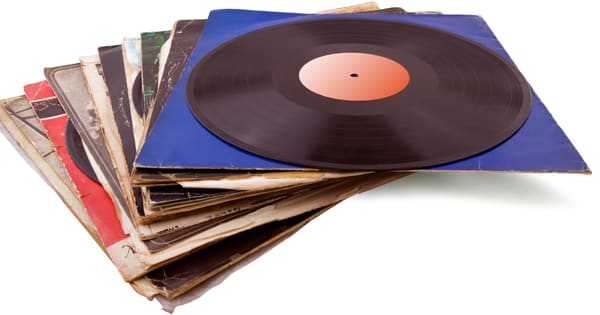How to downsize a record collection
Get vinyl record supplies and supplies at the Gold mine shop
By Susan Sliwicki
You have a lot of records and you’ve decided it’s time to give them a new home. What is the best way to delete a collection? We offer a few options based on what matters most to you and what you are willing and able to do.

Before you start listing or selling your records, start by taking stock.
1. Make a thorough list of what you have, including the artist name, title, record label, catalog number, and condition (along with any defects found) of each CD, case, and cover. Everything including original posters, lyric sheets, etc. If the album has another hype sticker, mention it. Yes, this can increase the appeal of a record.
If the record is still sealed, you can only assume it is in new condition. Better to list it as “sealed” than “mint”. It is possible that a prospective buyer will open the record and discover a manufacturing scratch or defect. This can also be the point where you start thinking about your refund policy (if any). You can choose not to accept returns of sealed records, but keep in mind that this may deter potential buyers.
(Not sure what condition your records are in or how to grade them? Click here for a quick overview.)
And there are more apps than you might think that can organize your collection – even for your smartphone. And in case you didn’t know, Discogs can be used to categorize your collection and then sell it when the time is right.
2. Capture sharp images of labels, sleeves and envelopes. These images can provide important clues to determine if a pressing is a rarity, a shared record, or worse, a reissue or a fake. Visual matters!
3. Organize the information in a user-friendly format that’s easy to access when posting listings or answering questions from potential buyers. High-quality digital images are especially useful when you want to email a photo or post it online.
4. Use resources such as one of Goldmine’s price guides or Popsike’s database of online auction results (www.popsike.com) to set your prices. You can also view published results on eBay to get an idea of price ranges for common records.
Warning: Just because a guide says a record is priced an “X” amount doesn’t guarantee the retail price will be the same. Condition, supply and demand are key factors. And just because a seller lists an album for a certain price on eBay or Discogs doesn’t say anything about its true value.
Find out what matters most to you when it comes to distributing your collection. What are you willing and able to do?
Option 1: Would you like to get the highest price when selling your records, regardless of the time or effort?
You can sell individual records through sites like eBay or Discogs; about publications like gold mine or a record collectors club newsletter; by working with a consignment shop; or record shows to sell themselves.
Option 2: Is a tax deduction more important to you than cash for your record collection?
Consider donating your collection to a charity such as B. a museum, church flea market, Goodwill, the Salvation Army or St. Vincent de Paul, and then claim the tax deduction. Again, make sure you document what you donated and what it’s worth (and you definitely want to get a receipt or other documentation from the organization), just in case Uncle Sam or his girlfriend, aunt IRiS, decide to donate a pop quiz later.
Option 3: Would you like to try to clear out as many records as possible from your collection in as few steps as possible?
Consider selling the collection as a collectible to a dealer, record store, or other collector. Craigslist, your community newspaper, and social media can be useful tools to spread the word and attract buyers. eBay can work here too; Several large bulk lots have made our previous Market Watch countdowns for the prices they have drawn. Checking dealer advertisements and websites can also help you find the best buyer for your records.
Just be aware that a dealer or shop may not want every record you have. And even if they’re willing to buy everything, you may (or may not) be offered a lower price than if you were to invest your time and money to sell the records individually. Remember, the buyer assumes the risk, and a retailer might not stay in business long if they pay the retail price for their merchandise.
Option 4: You want to sell your records together with many other items at once and the profit is not important?
Selling your records – with or without your antique furniture – at a flea market is still an option if you decide it works best for you. Be sure to mention records in your sales ad or listing, and let passers-by know you have records for sale. Many cities have community-wide flea markets that last a weekend and are a popular event for shoppers.
Just don’t be disappointed if you don’t manage to sell all the records at a single flea market. Consider teaming up with a friend or relative in another city to “trade” merchandise after your first few sales. Each of you get the articles in front of a fresh audience.
Hints:
• If your garage sale buddy is unfamiliar with vinyl record care and handling, please remind him or her to protect vinyl records from the elements and extreme temperatures.
• College towns can offer fertile market opportunities; Many of today’s biggest vinyl fans are college students and young adults who are discovering the format.
• References like antique dealer can help you set prices for other items in your sale, such as furniture, glassware, and collectibles.
